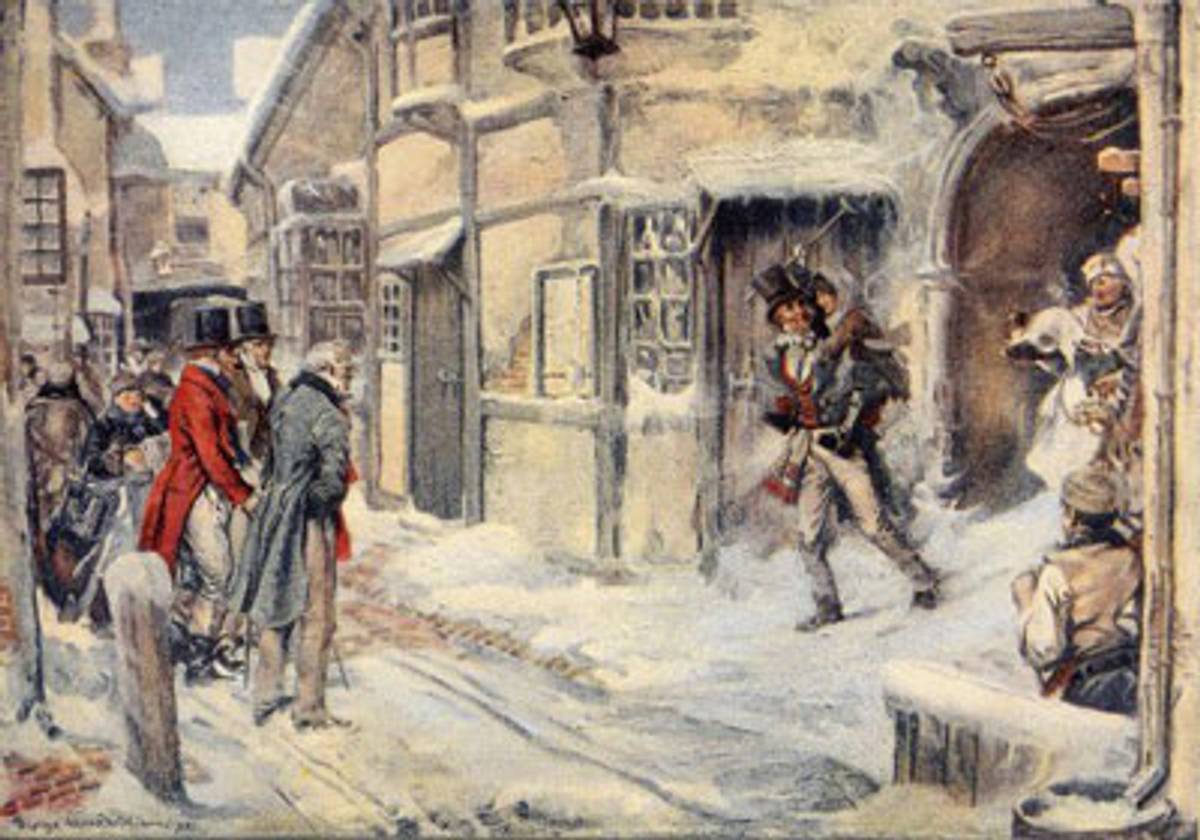At 22, I’ve only just realized: Christmas carols are religious songs. Theoretically, of course, I’ve always understood that Christmas is the celebration of the virgin birth of Jesus Christ—that’s Jesus Christ the Messiah, Jesus Christ the son of God. For someone who began her religious life in a Jewish-socialist, Yiddish-speaking preschool, I considered myself fairly well-versed in things Christmas. I never tired of telling people, first earnestly, and later ironically, that, depending on which church you ask (the Armenian Apostolic Church is good), I share my January 6th birthday with the Savior himself. I’ve taken art history, and like to think I know my way around an Adoration of the Magi. But it wasn’t until I found myself at rehearsal on a rickety stage last month, belting out the second verse of “Hark the Herald Angels Sing,” that it hit me—these people are for real. It’s hard to spin the lyrics “Christ by highest heav’n adored/Christ the everlasting Lord!” and “Veiled in flesh the Godhead see/Hail the incarnate Deity” as a sentiment of seasonal good cheer.
Like so many others, I moved to New York City to be an actor, which is a lot like jumping off a cliff. Jumping off a cliff is not a particularly sensible thing to do. Still, I made the leap with relatively few illusions: I knew great (and lucrative) High Art would probably have to wait…and wait. “Work begets work,” a college mentor told me. I was here to work.
The audition notice for A Christmas Carol, which I spotted in October on Craigslist, laid out the protocol: be prepared to read from the script and sing 16 bars of any of nine listed Christmas songs. A Greenwich Village theater company I thought I’d heard of was behind the production. I just had to learn my song. Since “Jingle Bells” was not on the list, I Googled the carols one by one, hoping to stumble upon something uptempo and preferably without high notes. Instead, I came to a startling realization–the notes were the least of my problems. Except for the second soprano line of the (distinctly secular) Carol of the Bells, a remnant from my stint in high school choir, I couldn’t produce 16 bars of any carol at all: “The first noel/ the angels did say/ blah blah something about sheep blah blah blah blah blah” wasn’t going to cut it. I settled on “Silent Night.” Though it had high notes I worried I couldn’t hit and lyrics I was sure I didn’t know, it seemed the best of the lot.

I turned to YouTube, and after listening to renditions by the Mormon Tabernacle Choir and the London Gay Men’s Chorus (it was not a joint concert), I scrawled the lyrics in a notebook to memorize on the subway. I wasn’t after any role in particular—there was Tiny Tim, I knew, and some ghosts, I was pretty sure, and of course Ebenezer Scrooge. There were probably some other characters, too. I’d take anything.
The thing about wanting something too badly—say, a role—is that it leads you to overlook certain warning signs that what you’re about to do is a bad idea. The tiny theater was overflowing with what seemed to be the entire contents of the nearby Salvation Army: broken gumball machine, stuffed cat, and half a dozen mismatched recliners that no longer reclined. The stage seemed to slope precariously. “It’s quirky!” I repeated to myself. “You never know!” I read for the role before a motley panel: a younger guy with Big Bird-like enthusiasm—the director—as well as two village elders, a humorless gentleman and Miss Havisham. They seemed impressed. Too impressed. Impressed verging on desperate. But if you’re alone in New York and in perpetual existential crisis and you’re dramatically declaring to anyone who’ll listen that you’re about to give it all up any day now and go work on a kibbutz in the Galilee, it’s really nice to be impressive.
When, at the audition, I wasn’t actually asked to sing, I was flooded with relief, but also an unexpected sense of disappointment. It was like slogging through the entirety of the Princeton Review only to find admissions tests had become optional. I was cast anyway, as the Ghost of Christmas Past.
By dress rehearsals, I’d seen the play countless times. I could hark the herald angels, adore on bended knee, I could even gather all ye faithful. Our last run before previews was wrapping up. On stage, Tiny Tim—a girl of no more than 9—delivered his famous last line, “God bless us, every one.” I watched from the wings. Throughout childhood, I loved the special Christmas episodes of sitcoms, the Christmas-themed Baby-sitter’s Club books. I wanted to set all games of pretend at Christmas—it is, after all, a wonderful wonderful wonderful time of the year, and definitely the single most exciting day I could think of. Maybe it seemed exotic? Or maybe it’s my weakness for any kind of collective excitement, which makes me tear up at the Olympic opening ceremonies and worry about my potential for collaboration with fascist regimes. Perhaps I’d simply fallen for the masochistic allure of exclusion—if Christmas wouldn’t have me as a member, after all, than it must be a pretty great club. Now, I was about to go on stage to sing about Jesus Our Emmanuel—if that’s not inclusion, I don’t know what is—but I was suddenly unsettled. Certainly, you don’t need to believe anything in particular to belt out those lyrics, and I have no idea where my fellow cast members stood on matters of faith. But as I watched Tiny Tim, now front and center, sing about virgin birth with charming seriousness, his face bathed in warm light, it never seemed clearer: Christmas just isn’t my holiday.